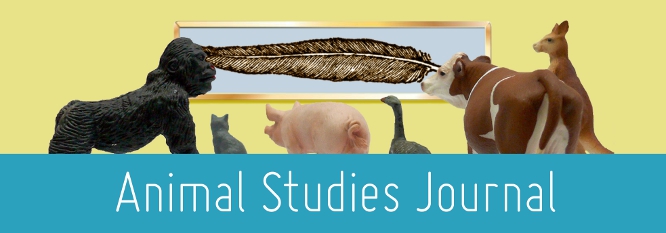Home > assh > ASJ > Vol. 7 (2018) > No. 1

Abstract
It would be difficult to be optimistic in the face of the political challenges that confront us. Globally, we have seen stark intensifications of economic inequalities and social stratifications, coupled with the rise of new nationalist and proto-fascist political movements. The environmental challenges are daunting: we now face a future where anthropogenic climate change will inescapably and deeply impact the earth’s systems. As I write, armed conflict continues to shape human affairs, generating continued misery and displacement; and instabilities have posed the possibility of new global conflicts, including a renewed threat of nuclear war. For non-human animals globally, the picture is also grim. On one hand, we are in the midst of an unprecedented global wave of destruction impacting the animals we share the planet with: ‘our global society has started to destroy species of other organisms at an accelerating rate, initiating a mass extinction episode unparalleled for 65 million years’ (Ceballos et al. 4). On the other hand, and despite growing awareness of the moral status of animals, humans continue to expand utilisation of animals for food, textiles and experimentation. As I have previously argued, our mainstay relationship with animals continues to be characterised by outright hostility, aggression; in other words, ‘war’ (see Wadiwel, The War).
Recommended Citation
Wadiwel, Dinesh, Animal Utopia: Liberal, Communitarian, Libertarian Or…? [Review Essay] Wayne Gabardi. The Next Social Contract: Animals, The Anthropocene, and Biopolitics, Animal Studies Journal, 7(1), 2018, 304-318.Available at:https://ro.uow.edu.au/asj/vol7/iss1/14
Included in
Art and Design Commons, Australian Studies Commons, Creative Writing Commons, Digital Humanities Commons, Education Commons, Feminist, Gender, and Sexuality Studies Commons, Film and Media Studies Commons, Fine Arts Commons, Philosophy Commons, Social and Behavioral Sciences Commons, Theatre and Performance Studies Commons

